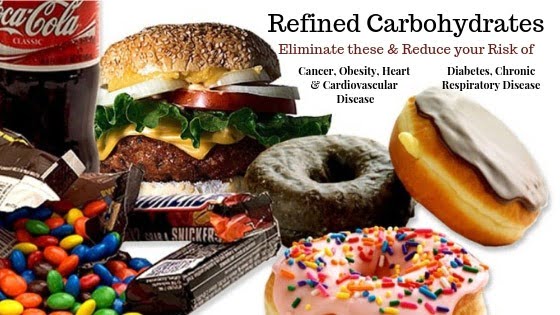Do you feel hungry always? Does your desire to eat continues throughout the day? If yes, then it would be better to assess your diet and lifestyle to determine if any modification is required to help you feel more full.
It’s quite normal to feel hungry if you don’t eat for a few hours. And hunger usually temporarily goes away after eating enough food. But if your stomach does not feel full after eating and has a constant rumble, there could be several possible explanations for this. Let’s scroll down and check-
ALSO READ: Healthy Food Consumption To Lead A Healthy Lifestyle
You Feel Hungry Always, If You……
Don’t Eat Enough Protein
Consuming protein is very essential for controlling appetite as protein has hunger-reducing properties. It works by regulating hunger-hormones and boosting several satiety hormones. Protein reduces levels of the hunger hormone ghrelin, while it boosts the appetite-reducing hormones GLP-1, peptide YY and cholecystokinin. This leads to an automatic reduction in calorie intake. That is the reason you may feel hungry frequently if you don’t eat enough protein in your diet.
High protein intake can make you burn 80-100 more calories per day. So, if you want to prevent excessive hunger, include a source of protein in every meal. Animal products, such as meat, poultry, fish, and eggs, some dairy products, including milk and yoghurt, as well as a few plant-based foods like legumes, nuts, seeds, and whole grains contain high amounts of protein.
ALSO READ: Top 12 Protein Rich Food Sources For Vegetarians
Eat Too Many Refined Carbs
Refined carbs lack filling fibre, your body digests them very quickly. That is why you may feel hungry always hungry if you eat a lot of refined carbs.
Refined carbs (found in bread, pasta, soda, candy, baked products etc.) have been processed and stripped of their fibre, vitamins, and minerals. Moreover, they are known to cause a rapid spike in blood sugar and insulin levels. Insulin again makes you hungry, causes you to eat more food.

Eat A Low-Fibre Diet
If you consume a diet which lacks fibre, you may feel hungry always. A high-fibre diet plays a great role in reducing your appetite and keeping you full. This is because high-fibre foods (fruits, vegetables, nuts, seeds, legumes, whole grains etc.) take longer to digest than low-fibre foods. Also, these foods tend to have high water content, which helps you feel full and keep hunger under control.
ALSO READ: Ram Kapoor Weight Loss Transformation: Followed Intermittent Fasting
Drink Too Much Alcohol
The more you drink, the hungrier you will be, and the more you will want to eat. Alcohol makes your brain think you are starving. This is because alcohol activates brain cells that usually promote hunger.
Drinking in excess will not only make you hungrier but also impair the part of your brain that controls judgment and self-control. This may lead you to eat more, regardless of how hungry you are. Therefore, avoid binge drinking if you want to avoid binge eating.
ALSO READ: Cure A Hangover: before you drink; while you drink; and the morning after
Eat Too Fast
If you feel hungry frequently, it may help to eat and chew your food more slowly. This is because eating slowly and chewing thoroughly sends a fullness signals to your brain and body releases anti-hunger hormones.
When you eat quickly, the body doesn’t get a chance to signal to the brain that you are getting full. Moreover, you tend to eat a lot more food than your body needs which may lead to weight gain.
ALSO READ: Amazing Diet Secrets of Shilpa Shetty Kundra

Don’t Drink Enough Water
Proper hydration has several health benefits. Drinking water makes you feel quite filling and has the potential to reduce appetite when consumed before meals. But if you’re not drinking enough of it, you may feel hungry frequently.
Sometimes, feelings of thirst can be mistaken for feelings of hunger. So, next time, if you feel hungry, grab a glass or two of water first to find out if you are just thirsty. Water works as a natural appetite suppressant!
ALSO READ: Sonam Kapoor Has Iodine Deficiency- 10 Signs & Symptoms
Don’t Sleep Enough
An adequate amount of sleep is extremely important for maintaining proper health. Good sleep helps in regulating the appetite-stimulating hormone, ghrelin in the body.
When you are sleep deprived, the level of ghrelin increases which makes you feel hungrier. Getting enough sleep promotes the feelings of fullness by maintaining the right levels of leptin hormone. So, if you are feeling hungry more frequently, it is recommended to get at least 8 hours of uninterrupted sleep each night and never let your hunger-hormones fluctuate.
Take Over Stress
When you’re anxious or tense, your body releases a hormone called cortisol. High cortisol levels from stress increase appetite and can cause someone to overeat. This could be the reason why you feel hungry always.
Stress is also known to increase hunger hormones, which may contribute to cravings for unhealthy snacks which are high in sugar or fat like chips, cookies or a pint of ice cream. Never let stress strikes you again if you want to keep your hunger in control.

ALSO READ: How to Control Sugar Cravings (Sweet Tooth)?
Exercise A Lot
People who regularly participate in high-intensity exercise or engage in physical activity for long durations tend to have greater appetites than those who do not exercise. They have a faster metabolism and burn more calories at rest than those who live sedentary lifestyles.
If you can’t reduce the intensity of your workouts, make sure to eat filling foods that are high in fibre, protein, and healthy fats.
Take Certain Medication
Several medications are known to increase your hunger and appetite as their side-effects.
If you are taking certain medications and have a doubt in your mind that those medicines are responsible for your frequent hunger pangs, consult your healthcare provider about some other alternatives.
Have Certain Medical Conditions
Excessive hunger is often a symptom of a few medical conditions, such as diabetes, hyperthyroidism, depression, anxiety, premenstrual syndrome, etc. If you suspect some underlying medical condition, then it is better to consult your healthcare provider. He will suggest the right treatment option for your increased appetite.
*Hunger could also be a sign that you are not eating enough, which can be solved by simply increasing your food intake.
